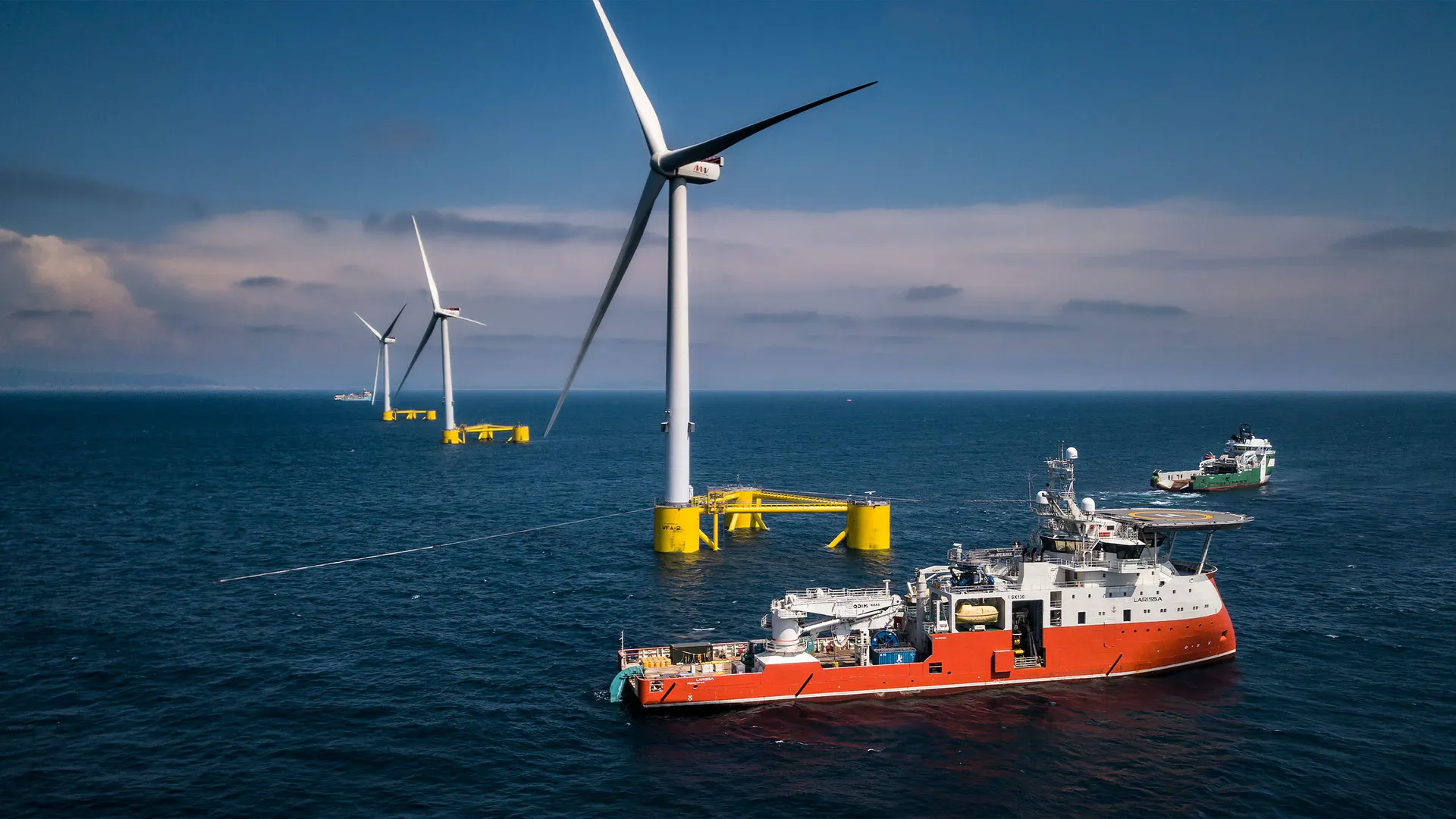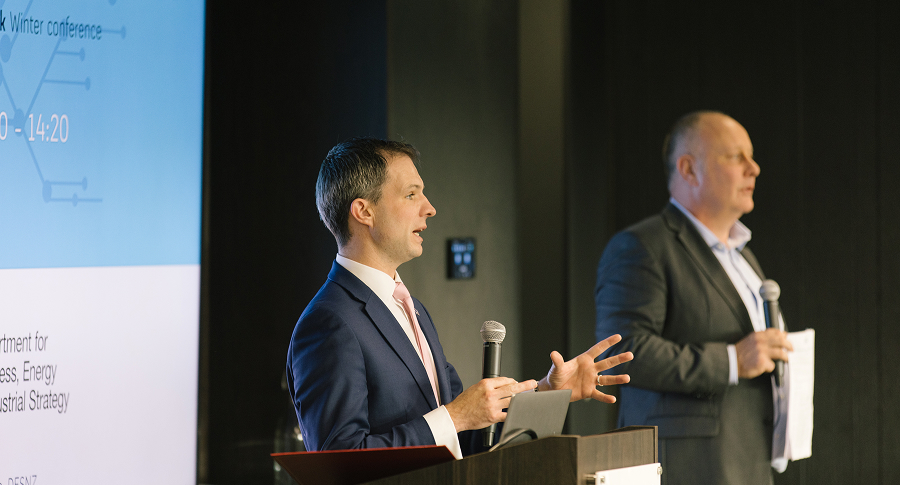The South West Floating Offshore Wind Opportunity Study identifies real and practical opportunites from FLOW to form the basis of an economic development, business support and investment plan for the South West region. It focuses on the role that the South West could play as part of a wider Celtic Sea cluster. The report was commissioned by Heart of the South West LEP and co-funded by Devon County Council, North Devon Council and Torridge District Council.
FLOW allows the deployment of wind turbines in locations with higher wind potential, opening up alternate opportunities for development. The Celtic Sea was previously overlooked for fixed offshore wind development due to the seabeds depths, however, FLOW has reignited the opportunity for large scale offshore renewable energy generation in the South West.
The report highlights how the Heart of the South West can play a key role in the government’s target of meeting 60% of the offshore wind supply chain from within the UK by 2030, drawing on its considerable strengths.
The report also reveals that FLOW in the Celtic Sea represents a significant long-term opportunity for the region, because the skills needed in the supply chain are transferable between marine engineering and offshore renewable energy sector applications.
"In order for the UK to transition to a net zero energy system, the deployment of large-scale renewable energy infrastructure, such as floating offshore wind, is critical. Floating offshore wind in the Celtic Sea presents a significant economic opportunity for the South West, especially given our core strengths in marine technologies, engineering, research and innovation."
Grace Millman, energy analyst, Regen
The report builds on work previously done by the Offshore Renewable Energy Catapult that estimated FLOW in the Celtic Sea could bolster the region’s economy by providing 3,000 jobs and £682m in supply chain opportunities across the South West and Wales.
"The Heart of the South West is a flourishing natural powerhouse, already home to the 3.2GW nuclear power plant Hinkley Point C and 1.8GWs of onshore renewable energy. The report’s findings highlight how the region can continue to develop its clean growth journey through FLOW, boosting the region’s role as the country’s greenest region.
It also confirms that the opportunity from FLOW will be best realised if the region collaborates, so a joined-up approach is now needed between universities and other academic institutions, the maritime sector, local businesses and public sector bodies such as the LEP and local authorities.”
Karl Tucker, Chair of the Heart of the South West LEP
"The FLOW project out in the Celtic Sea opens doors for existing facilities and industry in North Devon, such as the continued role of Appledore as a centre for vessel design and marine engineering. We are looking forward to working with partners to realise the potential, economic, supply chain, and job benefits of the project, as we work to promote the South West as a leader in clean growth."
Chris Fuller, Economic Development Officer, Torridge District Council
Alongside the benefits the project will bring to the region, the report outlines challenges surrounding grid connectivity, supply chain development, and data and spatial planning. It also sets out several recommendations including starting a supply chain development programme and leveraging Hinkley Point C, supporting the development of Appledore as a centre for marine technology, positioning Plymouth and Oceansgate as a key inward investment opportunity, developing the required skills across the Heart of the South West, and encouraging research, development and innovation through the Universities of Exeter and Plymouth.
The report sets out a number of actions that the Heart of the South West Local Enterprise Partnership and local authority partners can take to secure economics benefits from FLOW in the Celtic Sea, including:
- Raising awareness of the FLOW opportunity amongst companies and stakeholders and promoting this as part of a wider Celtic Sea regional opportunity.
- Ensuring the South West has a strong voice in key decision areas and communicating shared messages with national policy makers.
- Collaborating with broader South West and South Wales stakeholders, recognising that the scale and challenge of FLOW development requires a joined-up and integrated approach.
- Starting a supply chain development programme to support and enhance the pioneer companies who are already working in the offshore wind supply chain or are in sectors in which the South West has existing strengths.
- Supporting the development of offshore wind projects by supporting industry asks for policy support and infrastructure, while ensuring that community and social benefits are realised.
- Encouraging research, development and innovation through academic partners.














